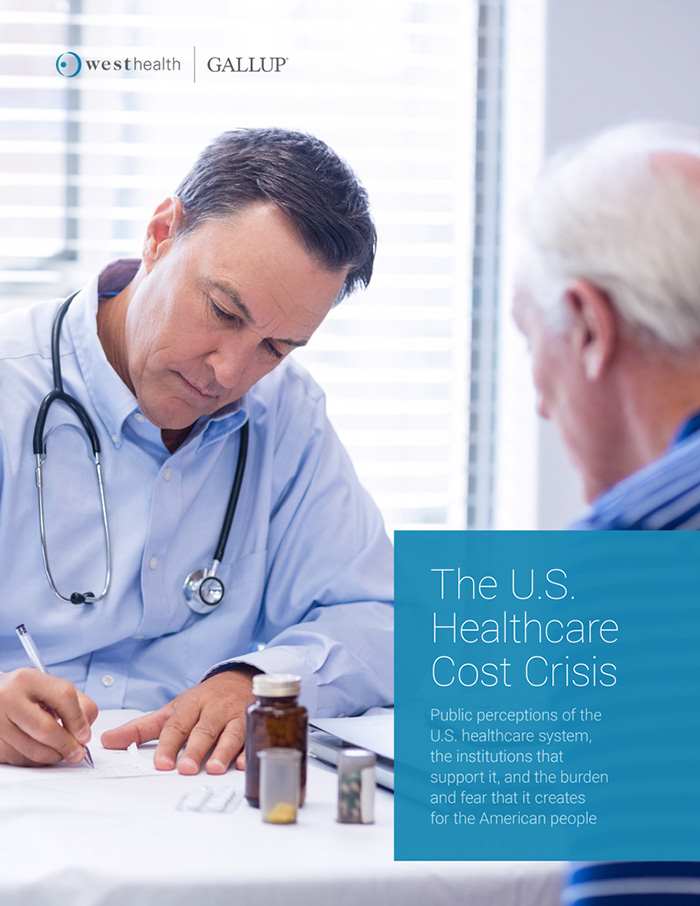The U.S. Healthcare Cost Crisis
Discover how the high cost of healthcare impacts Americans' personal finances, individual healthcare choices and perceptions of the U.S. healthcare system. A new survey from West Health and Gallup reveals financial hardships but gaps between political parties on the overall quality of the system.
Every day, Americans are burdened by the strain and fear of ballooning healthcare costs. Yet despite the hardships many Americans endure, 64% say they are "completely" or "mostly" satisfied with their personal experience of the healthcare system.
Additionally, one in four skipped a medical treatment because of cost, and in the past year alone, Americans collectively borrowed an estimated $88 billion to cover healthcare costs.
Partisan divides split Americans' perceptions of the healthcare system's quality. While 48% of the general population believes that the quality of care in the U.S. is the best or among the best in the world, this swells to 67% among self-identified Republicans, compared with just 38% among Democrats.
Other key findings in The U.S. Healthcare Cost Crisis include:
- the sacrifices Americans make, and the tradeoffs they are willing to accept, to offset the impact of high healthcare costs
- Americans' concerns about the damage rising healthcare costs could do to the U.S. economy and to their own personal finances
- Americans' expectations about their healthcare costs over the next two years
- the extent to which Americans defer or forgo care or medicine due to high costs
- Americans' understanding of their out-of-pocket costs before receiving care

Read the report press release.
45% U.S. adults who are concerned that a major health event could lead to bankruptcy
$88 billion estimated amount borrowed by U.S. adults in the past year
67% Republicans who consider the quality of care in the U.S. to be the best or among the best in the world; just 38% of Democrats agree